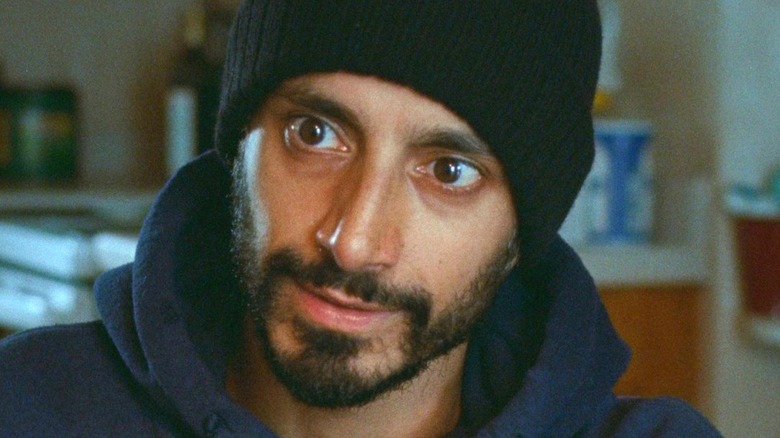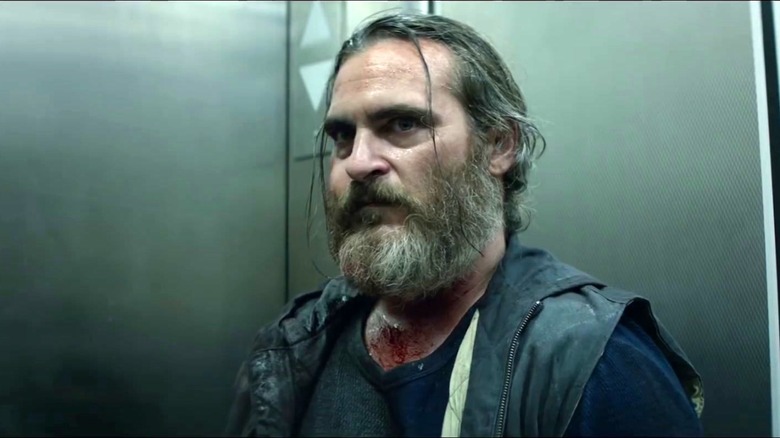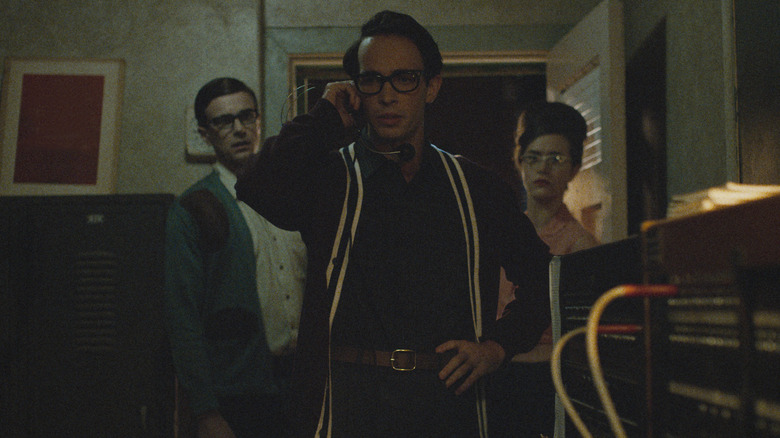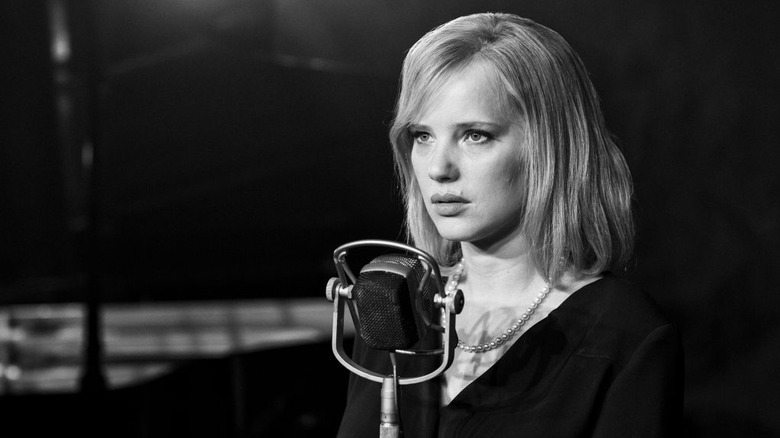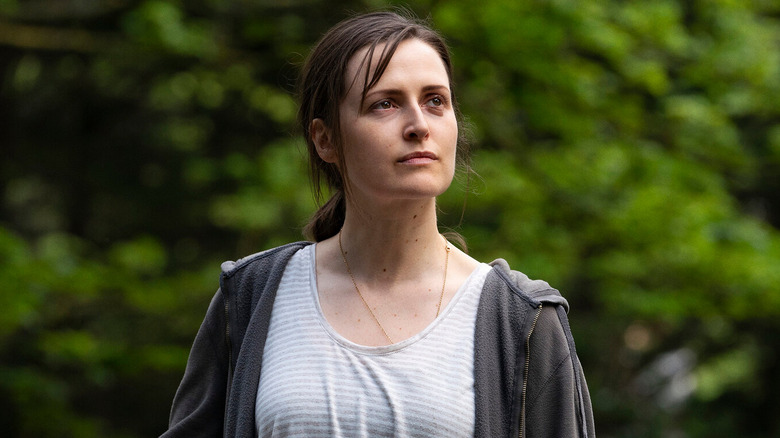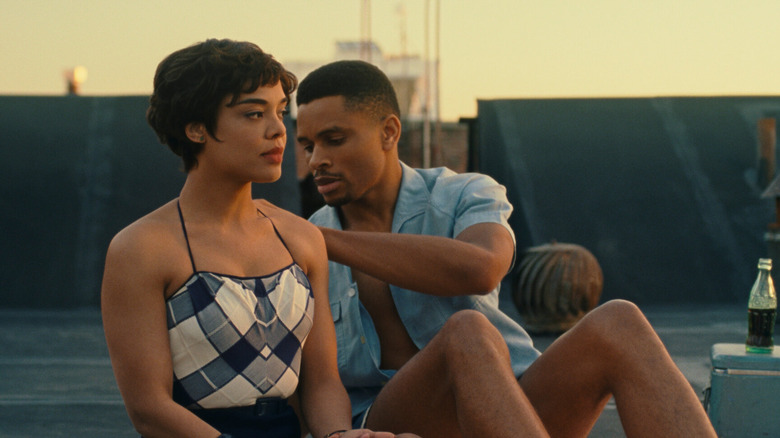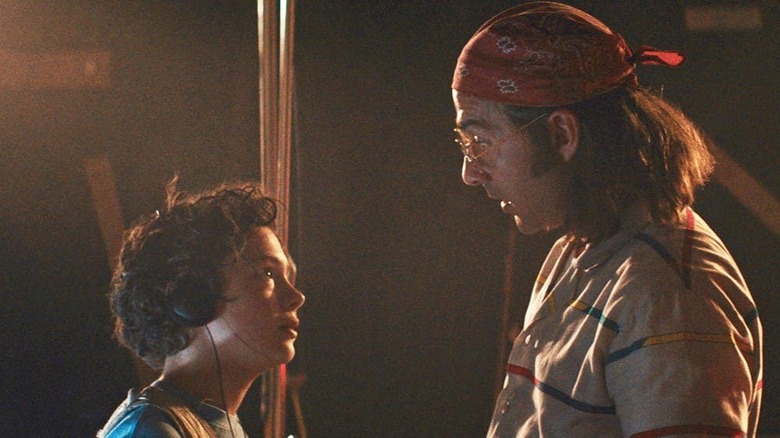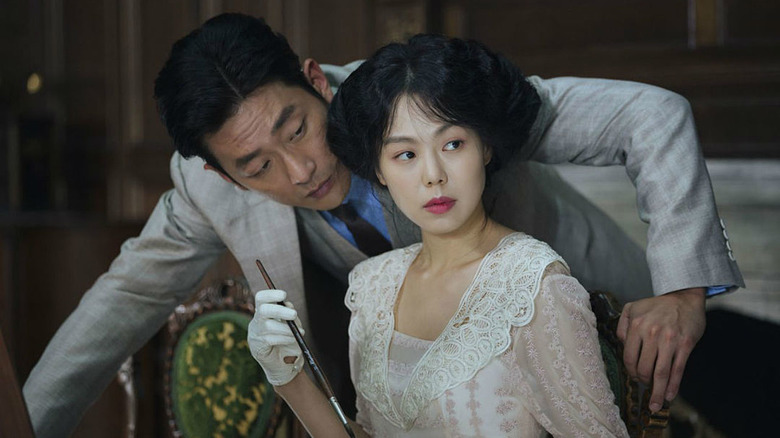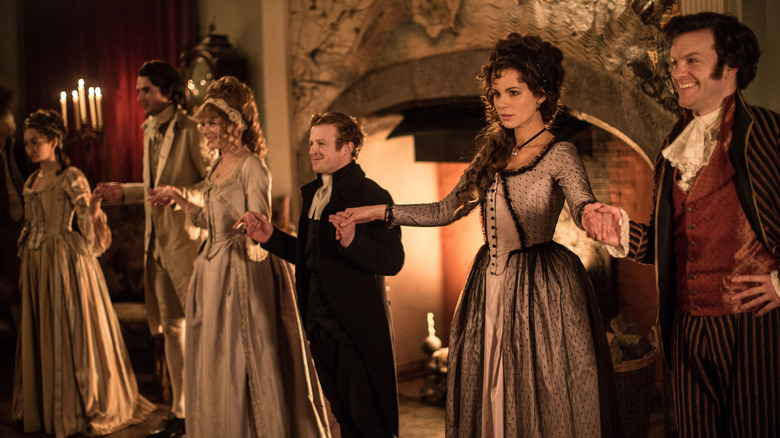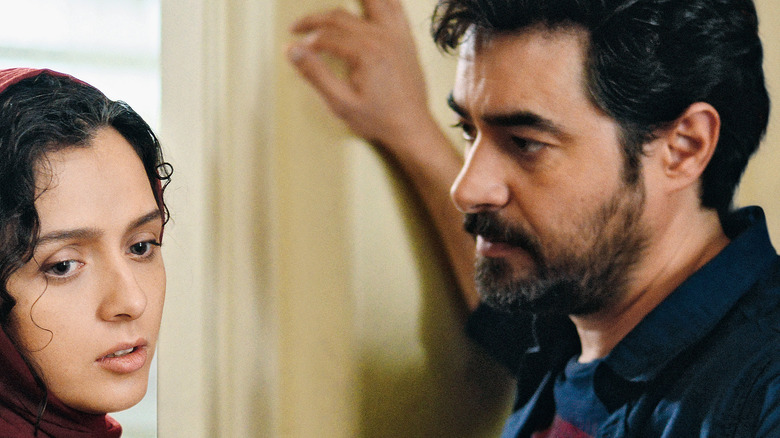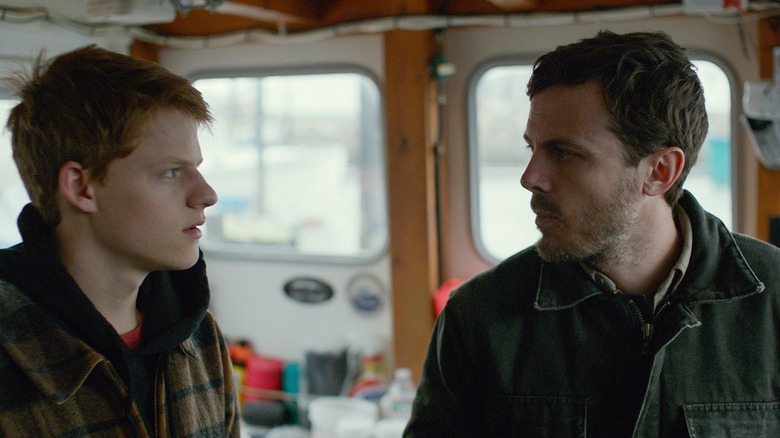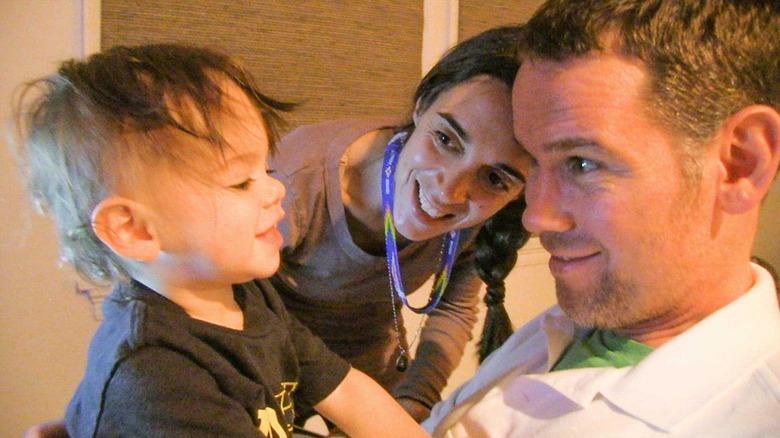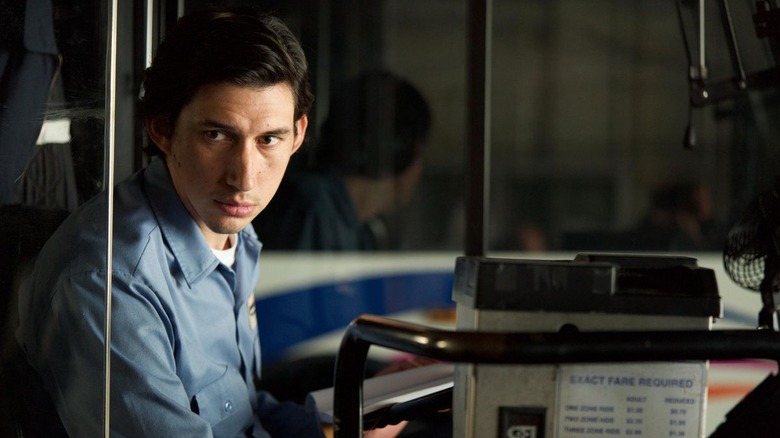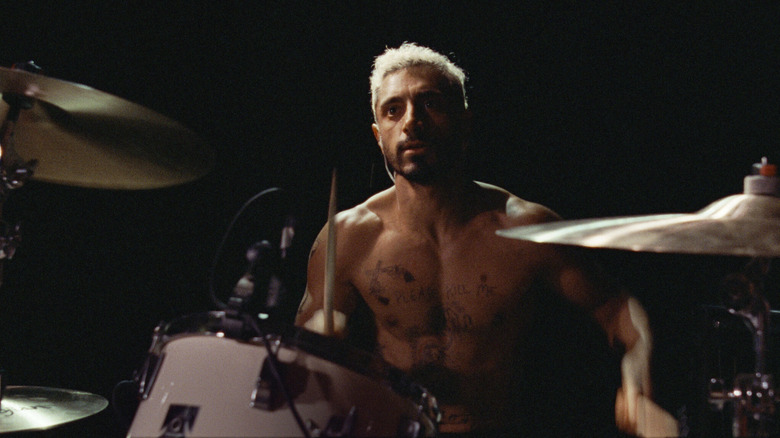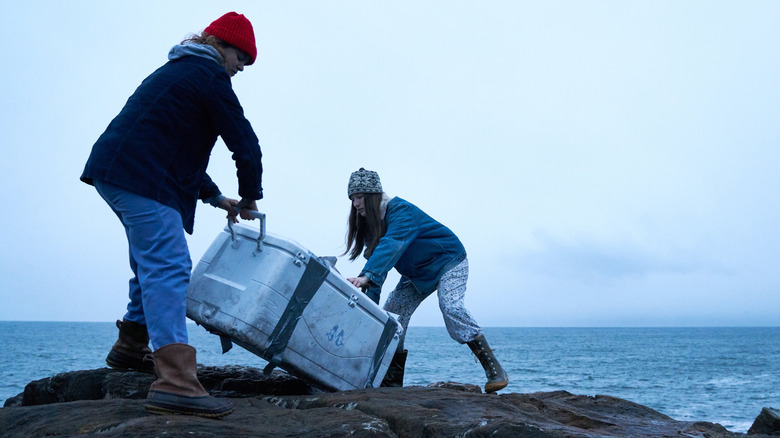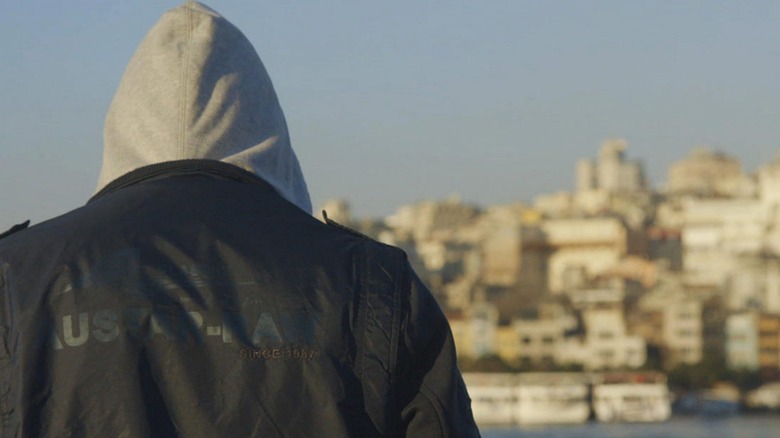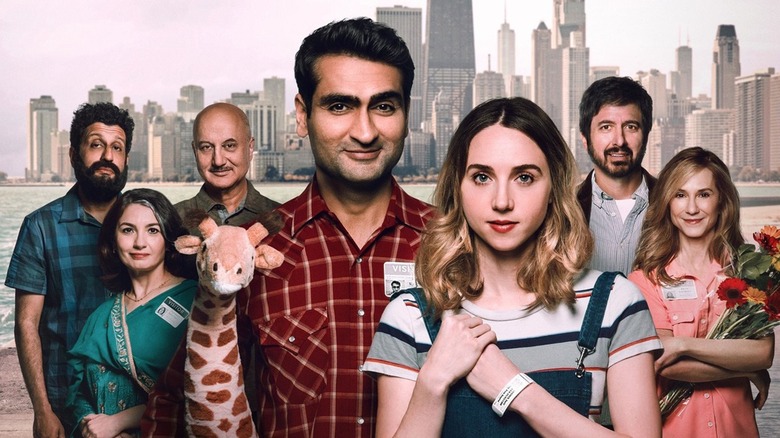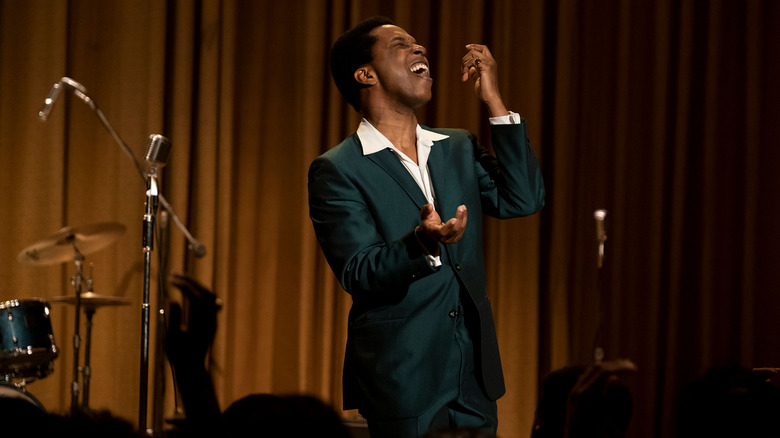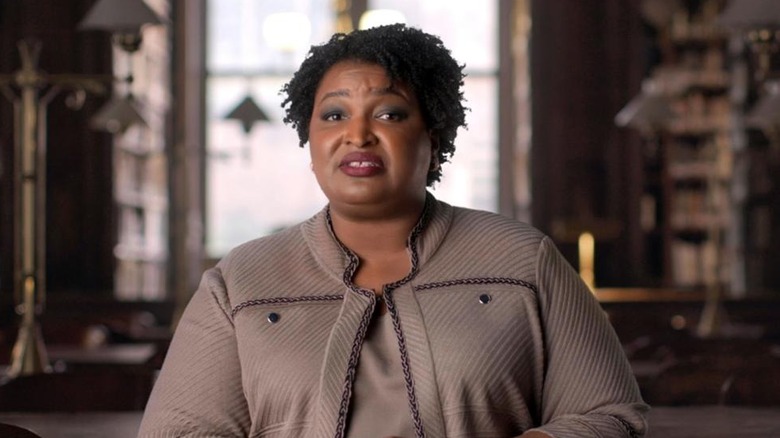25 Best Amazon Prime Movies You Can't Watch Anywhere Else
It is not as new, and therefore not as exciting as HBO Max. Unlike Netflix, Disney+, and Hulu, it's essentially named after an online book store, so our minds do not immediately link the brand name, "Amazon," with onscreen entertainment.
But setting all that aside, since its launch in the mid-'00s, Amazon Prime has evolved into a perfectly solid streaming platform. If anything, Prime's capacity for feature-length quality content might be a tad overlooked. And what the word "Amazon" lacks in instant association with movies, it makes up for in corporate synergy. Thanks to its connection with Amazon Studios, Prime includes a tidy pile of exclusive films. The roster ranges across the proverbial board, but as you'll see if you read on, the platform fills a particular niche for high-brow documentaries, non-English-speaking films, and prestige drama. And yes, it's also got Borat Subsequent Moviefilm (2020).
To learn the 25 best films you won't find on any other streaming platform, we gazed into the Rotten Tomatoes review aggregator, and here are the results...
Brittany Runs A Marathon (2019)
In a cinematic landscape where every other movie seems to entail an extraordinary battle between good and evil for the fate of all existence, thank goodness for low-stakes comedies like "Brittany Runs A Marathon."
In the debut from writer-director Paul Downs Colaizzo, an attempt to scam an Adderall prescription ends with a doctor telling Brittany (Jillian Bell) that she's clinically overweight, which prompts her quest to get healthier. The trailer shows Brittany doing tons of jogging; going on job interviews; meeting new people; and hearing words of encouragement from a character played by Lil Rel Howery of Get Out (2017) fame. But we never see Brittany run a marathon. This presents us with the question — Does Brittany run a marathon in "Brittany Runs A Marathon"? Or perhaps the marathon the title refers to is a metaphor?
This question can only be answered on one streaming platform — Amazon Prime.
You Were Never Really Here (2017)
Described by one critic as "Joker" (2019) without any connection to DC Comics mythology, "You Were Never Really Here" marks yet another disturbing, violent, and acclaimed project from "We Need To Talk About Kevin" (2011) writer-director Lynne Ramsay. While presenting itself as something more akin to an indie drama than a genre film, "You Were Never Really Here" scans like a worthy watch for fans of crime and/or horror who don't mind a movie that they continue to ponder long after the credits roll.
The 2017 Cannes Film Festival granted Joaquin Phoenix that year's Best Actor nod for his performance as seemingly noble mercenary Joe, which means "Joker" is not actually the first instance of Phoenix winning a best actor award for playing a mentally unstable main character whose name starts with the letters "J" and "O." It's also, by Rotten Tomatoes's estimation, the third-best reviewed film of Phoenix's acclaimed 30-year career, behind only "Her" (2013) and "Hotel Rwanda" (2004).
Human Flow (2017)
"Human Flow" brings us up close and personal to a mortifying global crisis. According to the film's promotional material, as of 2017, untenable circumstances — armed conflict, climate change, or food shortages — have forced 65 million people out of their homes and into a dire search for resettlement. Since then, according to numbers from the UN Refugee Agency, the situation has grown worse to the degree of just about 80 million folks with nowhere to go.
Director Ai Weiwei pulls together footage from more than 20 countries, shot with devices ranging from top notch professional filmmaking cameras to smart phones. According to the reviews, the film strives to capture grounded, personal perspectives, rather than hash out the minutiae of international political conflicts or environmental policy. The minimalistic approach to wonkiness could make for a more accessible viewing experience. Many, if not most people find international politics confusing, but almost everybody understands existential sadness and desperation, at least in the abstract sense.
The Vast of Night (2019)
A more cynical website than this one might take a look at the trailer for "The Vast of Night" and write, "Okay, it's 'Stranger Things' meets 'The X-Files' meets 'Stand By Me' (1986)." But frankly, the pastiche we just described probably wouldn't be as interesting as the actual "The Vast of Night" – which deftly amps up an ominous atmosphere where better-funded, less imaginative films might lean into spectacle. Critics have heaped much praise on writer-director Andrew Patterson for his pluck and ingenuity in putting together a visually compelling sci-fi chiller for significantly less than $1 million.
This is an imaginary story, of course, but let's hope it leads to more people asking questions about what really happened in Roswell, New Mexico in the late 1940s. Did someone see a weather balloon? Or did space aliens show up, invent the internet, then travel to the future, and murder the original Avril Lavigne? Or is there a third possibility? Humankind must know.
Cold War (2018)
The post-World War II competition for supreme global superpower status between the U.S. and the U.S.S.R. left the whole world shaking with its entirely justified fear of nuclear extinction. "But who cares about any of that when you've got love and art?" asks "Cold War" director Paweł Pawlikowski, who used the story of his parents' courtship as inspiration for the film. "Cold War" proceeds to answer its own question, saying, "Well, quite a few people with significant influence care about all that, actually. Global politics can have a profound influence on every aspect of an individual's existence – even their romantic lives."
Pawlikowski – who won a Best Director award at Cannes for this effort – pulls mesmerizing imagery out of mundane subject matter on a regular basis, which is the film's most prominent selling point. But its delivery of an intense, roughly 15-year-long, politically-and-geographically-complicated love affair in just under 90 minutes might equally appeal to you if you're into the whole brevity thing.
Herself (2020)
Sure, a scan of the trailer might lead you say, "Hmm, this leans a little toward the maudlin side." But to whatever degree that's true, it hasn't been a deal killer for more than a few folks who watched "Herself" and wrote about it. Maybe a little sentimentality every once in a while isn't such a bad thing? After all, even David Lynch got the best reviews of his whole career for "The Straight Story" (1999).
And let's face it – the plot of "Herself" could be a vital cinematic instruction manual for our future way of life. Judging by how the real estate market operates nowadays, pretty soon we'll all be building our own houses from scratch on land borrowed from sympathetic, kindly, weird aunts and uncles. Before this movie, director Phyllida Lloyd already had a successful film career with "Mamma Mia!" (2008) and "The Iron Lady" (2011) on her resume. Nevertheless, "Herself" is also Lloyd's first feature-length, theatrically-released film that does not star Meryl Streep.
Sylvie's Love (2020)
Between her turns as Valkyrie in the Marvel Cinematic Universe, the irreverent love interest in "Sorry To Bother You" (2018), and her "Westworld" character's confusing identity and frequent proximity to extreme violence, we've grown unaccustomed to the notion of Tessa Thompson appearing in anything akin to light-hearted romantic drama. And yet, in "Sylvie's Love," Thompson appears more than capable of inhabiting a fictional world that is no way connected to science fiction or fantasy.
Thompson plays an aspiring television professional who falls for an up-and-coming jazz musician (Nnamdi Asomugha). Professional opportunities bring the relationship to an arguably premature end, but the pair reconnect years down the line. It's not entirely unlike "Cold War," which also appears on this list, except it's American instead of Polish; and the story's central relationship winds up subjected to media technology, music trends, and social progress, instead of the Soviet Union's quest for global dominance.
Invisible Life (2019)
This is a Portuguese-language film set in Brazil in the 1950s, but the kind of normalized, brutal misogyny depicted in "Invisible Life" is hardly specific to South America of that era. Doubt us? Just watch a few episodes of "Mad Men," set in 1960s Manhattan. Or ask an actual woman from real life. Either of those should prove our point.
"Invisible Life" marks just about the most acclaimed work in writer-director Karim Aïnouz's nearly 30 years in filmmaking. The overwhelmingly positive reviews describe a visually engrossing tale with an epic scope, centered on down-to-earth characters. Julia Stockler and Carol Duarte play the involuntarily estranged siblings Guida and Eurídice, who find themselves torn apart by circumstances, social pressure, and what feel like fairly modest ambitions by contemporary standards. The notion that the sisters are unable to engage in activities like traveling and going to music school without causing major tiffs hardly seems fair. Hopefully everything works out all right for them in the end.
Honey Boy (2019)
Shia LaBeouf has been thoroughly canceled since the release of "Honey Boy," an autobiographical project he wrote and co-stars in. But the actor's allegedly loathsome personal behavior hasn't retroactively lowered the film's RT score. Since we more or less have to rationalize its presence on this list anyway, maybe let's say it isn't fair to punish director Alma Har'el or any of the other people who worked on this movie just because of its subject's issues?
"Honey Boy" follows the life of LaBeouf proxy Otis – played by Lucas Hedges or Noah Jupe, depending on the era of the flashback – from an unhappy childhood as the progeny of a divorced rodeo clown, to his adult status as a Hollywood cautionary tale. Hallucinatory flashes of glamorous, on-set memories meld into gritty, dusty images of the film's embarrassing version of the real world, and that's just in the trailer. "Honey Boy" looks like the sort of thing that – if they can pull the art away from one of the artists – Spike Jonze fans might find engaging.
The Handmaiden (2016)
Unlike the vast majority of noteworthy directors of non-English-speaking films, Park Chan-wook's name might have some recognition from the typical reader of a English-language pop culture website like this one. The original South Korean version of "Oldboy" (2003) makes frequent appearances on American laptop screens; without "Oldboy" to inspire it, the hallway fight scene from the "Daredevil" episode "Cut Man" might have never come into fruition.
"The Handmaiden" actually has a higher RT score than "Oldboy," and appears to continue Park's penchant for disturbing themes and imagery. Based on the promotional materials, we can assume "The Handmaiden" includes a romance between two women, which sounds perfectly harmless on its own. But considering the trailer's angular energy, intimidating ambient music, and Park's track record for unsettling twists and turns, maybe we should assume there's much more going on here than anything you might see in a typical period piece.
Gimme Danger (2016)
Once upon a time, frequent listeners of the so-called "punk rock" genre of popular music would argue about which group of musicians invented the style. Was it the Sex Pistols in London? The Ramones in New York City? Or maybe it was The Stooges, roughly a decade before either of those groups existed?
Singer Iggy Pop does explicitly tell us, "I don't want to be a punk," in the trailer for "Gimme Danger," so let's say punk evolved along with the contributions of several artists and leave it at that. Regardless, Jim Jarmusch chronicles the essential quartet through their influential but calamitous run in the '60s and '70s, plus the triumphant early 2000s reunion.
Rock docs are a dime a hundred, but Jarmusch and Iggy Pop have collaborated on numerous non-music projects since the early '90s, and the director evidently started working on "Gimme Danger" in roughly 2008, nearly a decade ahead of its release. So, as the very encouraging press indicates, it's not like Jarmusch and Pop banged this thing out over a weekend just to sell a few DVDs at the merch table.
Love and Friendship (2016)
Why do humans, as a species, love stories about stuffy British people so much? Cultural observers have been attempting to answer that question since "Sense and Sensibility" hit the bookshelves, and if they haven't figured it out by now, they definitely never will. Jane Austen novels will be adapted into movies until movies are no longer things that are made. Women will mostly enjoy them. Men will mostly pretend not to. It will all be fine.
"Love and Friendship" marks a "The Last Days of Disco" (1998) reunion of writer-director Whit Stillman, Kate Beckinsale – who plays Lady Susan, the titular character in the 1871 novel upon which this film is based – and Chloë Sevigny. This makes it incidental nostalgia bait for Jane Austen aficionados and nerds for lesser-known products of the '90s indie film boom. Reviews describe "Love and Friendship" as "saucy" and an "out-and-out comedy," so perhaps it's not as stuffy as we initially assumed.
The Salesman (2016)
If we tell you this is a French-Iranian co-production about amateur actors who perform Arthur Miller's "Death of A Salesman," and that the film eventually swerves into psychological thriller territory, then "The Salesman" might sound significantly more complicated than it is. In fact, it's a somber, anxious exploration of victimhood and revenge ideation following a sexual assault. It might be a lot to process, but it's all a pretty far cry from confusing.
The circumstances and stated attitude of Emad Etesami (Shahab Hosseini) are pretty similar to those of any number of ham-fisted action heroes, but "The Salesman" is too cerebral to fall into the trappings of revenge fantasy, tempting though they may be.
At 96 percent on Rotten Tomatoes, you might assume it's director Asghar Farhadi's best reviewed film — but you would be mistaken. He's actually topped that three times with "Fireworks Wednesday" (2006), "Darbareye Elly" (2009), and "A Separation" (2011), at 100 percent and 99 percent twice, respectively.
Manchester By The Sea (2016)
If you're a resident of Massachusetts – particularly the suburban areas around Boston known as the North Shore and the South Shore, or any town that has at least one long wooden pier – this trailer for "Manchester by the Sea" is a breath of fresh, salty ocean air. There are no Dropkick Murphys songs. Not a single character is wearing a Red Sox hat. Nobody mentions Whitey Bulger, or a Whitey Bulger stand-in character with a different name, or anything to do with the Irish mob of the 1970s or 1980s. Stars Casey Affleck, Michelle Williams, and Lucas Hedges play characters who behave like normal people with Massachusetts accents, rather than insufferable "yah dood" stereotypes.
But as far as the actual story goes, janitor Lee Chandler (Affleck) has to take in his brother's teenage son Patrick (Hedges) following a tragic accident. The widely-acclaimed effort scored Affleck a Best Actor Oscar at the 2017 ceremony; likewise, writer-director Kenneth Lonergan also racked up an Oscar for Best Original Screenplay.
Gleason (2016)
These days, when we hear the phrase "sports documentary" our minds immediately conjure up "The Last Dance," ESPN and Netflix's docu-series on Michael Jordan and The Chicago Bulls. Meanwhile, "Gleason" is nothing remotely like "The Last Dance," which should make us appreciate the underrated versatility of sports documentaries.
Steve Gleason played in the NFL from 2000 to 2008, and achieved fame in particular for his contributions to the New Orleans Saints' 2006 season in the aftermath of Hurricane Katrina, a pivotal year in which both the city and the team seemed to finally get on the road to revival. Tragically, he became afflicted with amyotrophic lateral sclerosis (ALS, aka Lou Gehrig's disease) a few years following his retirement.
In "Gleason," the titular subject's wife becomes pregnant with the couple's first child, and the onetime football star oversees his son's infancy while struggling with ALS. The film has been very warmly received by the critical community for its unflinching look at a former athlete in the throes of severe physical deterioration, as well as what Rotten Tomatoes called its "intimate portrait" of his family and their response to his ordeal.
Paterson (2016)
After breaking through as Hannah Horvath's on-again, off-again, mildly-deranged love interest Adam Sackler on HBO's "Girls," Adam Driver cemented his place in cinema history as Kylo Ren — the "Star Wars" sequel trilogy's conflicted answer to Darth Vader. But aside from his three-part stint in a galaxy far, far away, Driver's kept his starring roles conspicuously grounded.
He plays a recently unmarried playwright in "Marriage Story" (2019), a small town sheriff in the Jim Jarmusch-directed "The Dead Don't Die" (2019), and in "Paterson" – another collaboration with Jarmusch — a bus driver named Paterson who writes poetry. He can't choke you with his mind; he doesn't know how to use a lightsaber; his dad is not Han Solo. But he does offer us playful insights into the subtleties of the city he works in, plus he has a dog and a girlfriend. And unlike any recent "Star Wars" films, you can watch "Paterson," decide you really like it — like these people did — post your thoughts online, and you definitely won't get harassed and doxxed by toxic fans, because there is no such thing as a toxic Jim Jarmusch fan.
Sound of Metal (2019)
From "Pink Floyd: The Wall" (1979) all the way to "Her Smell" (2018), we've been up to our eyebrows in cinematic rock 'n roll stories that don't always offer thoughtful perspectives on the challenges and pitfalls of being a working musician. With its deft use of sound design and its absence of clichés, the intense and meditative "Sound of Metal" utterly nails it as a thoroughly unglamorous vision of a musical artist who suddenly finds himself unable to hear his own work.
It might also be one of the few almost-accurate renderings of an up-and-coming band's touring lifestyle in recent celluloid memory. Ruben (Riz Ahmed) and Lou (Olivia Cooke) don't have space in their routine for debauchery of any stripe; once they're done selling their own merch, they've got to pack up their instruments and get back in the van for the next gig. This is their job, after all — until Ruben, already a recovering addict, abruptly goes deaf.
Having worked principally in documentaries before this project, director Darius Marder transfers his customarily candid visual sensibility to Ruben's surreal journey. Ahmed's nomination for Best Actor at the 2020 Academy Awards could not overcome Anthony Hopkins's winning performance for "The Father" (2020), but "Sound of Metal" happened to bring home the awards for Best Editing and Best Sound.
Blow The Man Down (2019)
Ever wish the Coen Brothers had cranked out a few more quirky, violent small town murder sagas like "Blood Simple" (1984) and "Fargo" (1996), and spent a little less time making literally every other kind of movie? If so, "Blow The Man Down" generates more than enough jet black comedy to satisfy your nostalgia for William H. Macy's fake Minnesotan accent, all while offering an entirely new barrel of bloody, oft-uncomfortable chuckles.
Via the writer-director team of Bridget Savage Cole and Danielle Krudy — whose other claim to fame is a pair of episodes in the recent CBS All Access adaptation of Stephen King's "The Stand" – "Blow The Man Down" transpires in a coastal Maine community, historically supported by a thriving fishing industry. As it happens, an unwelcome and aggressive sexual advance leads to a semi-accidental homicide, which leads to a cover-up, which leads to a whole bunch of wacky, bone-chilling shenanigans.
Maybe we're misinterpreting the trailer, but it's possible the amount of murder in this film extends beyond the initial guy with the extra-curious hands. It will probably be worth your while to find out for yourself.
One Child Nation (2019)
Denizens of other countries might have a very difficult time imagining what life was like under China's one-child policy. The nation's state-controlled family planning laws were once among the most aggressive of their kind in modern human history. Having been born under the policy, documentary filmmaker Nanfu Wang had more or less taken it for granted as the normal course of things, until motherhood changed her perspective. In "One Child Nation," Wang and co-director Jialing Zhang conduct a deep exploration of the controversial rules that remained in place from 1979 to 2015.
The reviews indicate a film that we can describe as, for lack of a better word, "heavy" for its frank displays of human confusion, trauma, and suffering. In addition, there might be a cautionary tale against the state regulating its citizens' reproduction choices somewhere in "One Child Nation." But what's pretty wild about the review snippets on Rotten Tomatoes is that pro-lifers seem to enjoy the movie as much as the pro-choice crowd. Could this be a film that transcends politics? Or perhaps when global and personal politics intersect and don't always directly sync up with each other, the world can be more complicated than American cable news makes it seem like some of the time?
City of Ghosts (2017)
In many countries — America, for one example — religious extremist groups like ISIS are frightening, but in a distant, abstract way. We understand that they're highly unlikely to ever literally take over our governments, not least because our governments can and do routinely drone strike them from space. But for folks who have to actually live in the areas ISIS can physically occupy, it's a very different and far more dangerous situation.
Directed by Matthew Heineman and subtitled into English, "City of Ghosts" – not to be confused with the Netflix animated series of the same name – chronicles the plight of independent journalists striving to remain alive and active following the 2014 ISIS conquest of Syria. The reviews generally emphasize the film's unflinching gaze on the awful realities of life under a religious fundamentalist terror state, and the brutally high price of getting those facts into the global public sphere.
The Big Sick (2017)
Married couple Kumail Nanjiani and Emily V. Gordon converted the genesis of their relationship into an Academy Award-nominated script touching on traditionalism and its inevitable clash with modernity; the immigrant experience as it pans out over generations; and the nagging, slow-burning terror typically experienced in hospital waiting rooms.
Nanjiani plays a fictionalized version of himself, Zoe Kazan plays a fictionalized version of Gordon, Ray Romano cranks out a career-best performance as Emily's well-meaning and deeply flawed father, Holly Hunter plays Emily's mother, and "Search Party" co-creator Michael Showalter directs.
Nanjiani and Gordon frequently guested on Dan Harmon's "Harmontown" podcast back when that was a thing, which makes "The Big Sick" a potentially essential view for "Rick and Morty" or "Community" completists. Although we suppose that's also true for people who really like "Game of Thrones" or "Killing Eve" or basically whatever you're into. "The Big Sick" is really, really good, you guys!
One Night In Miami... (2020)
Promotional blurbs for "One Night In Miami..." – such as the one appearing in its RT "Movie Info" section – explicitly note the iconic status of its four subjects: Malcolm X (Kingsley Ben-Adir), Muhammad Ali (Eli Goree), Jim Brown (Aldis Hodge), and Sam Cooke (Leslie Odom Jr.). But its their humanity that sets the feature film directorial debut by actor and television director Regina King apart from the pack of historical dramas.
Assuming you're more inclined to watch movies than read books, your knowledge of Malcolm X might begin and end with Spike Lee's highly-reverent 1992 biopic. But rather than depict the controversial, crucial activist as a stoic folk hero, "One Night In Miami..." has him scolding Cooke about only recording songs he's certain won't offend any white people, and emphasizes the not-entirely-transparent pretexts under which he brought Ali (aka Cassius Clay) into the Nation Of Islam. Ben-Adir's Malcolm X comes off as an annoying, obstinate nerd sometimes, which makes his legacy and inevitable sacrifice resonate all the more profoundly.
Time (2020)
"Time" had the misfortune of running up against "My Octopus Teacher" in the Best Documentary category at this year's Oscars. But simply because the Academy found "Time" incrementally less worthy than Netflix's aquatic, interspecies love story in no way diminishes its value as a viewing experience.
Sibil Fox Richardson toils for the release of her husband, who's riding out a 60-year prison sentence for an armed robbery that took place in the early '90s. Based on the fact that Richardson herself only served three and a half years for her role in the same robbery, she proposes to the state that her husband perhaps does not deserve literally 20 times the amount of punishment that she does.
While it's a story about individuals and their specific case, the critics saluted "Time" for its deft addressing of fundamental discrepancies and contradictions in the U.S. criminal justice system. By appearing at a point where many Americans find themselves questioning our society's fundamental understanding of crime and punishment, "Time" feels ... well, timely.
All In: The Fight For Democracy (2020)
In the interest of full disclosure, we noticed that the 100 percent fresh rating for "All In: The Fight for Democracy" is based on 65 reviews. Significantly more critics chimed in on "One Night In Miami..." and "The Big Sick" – 326 and 303, respectively. So despite their 98 percent fresh ratings, one could argue those films have been more thoroughly scrutinized and deserve a top spot more than "All In."
But then we thought some more, and asked ourselves, "Do we really want to throw out a bunch of reviews based on an arbitrary technicality we made up on the spot in order to prevent Stacey Abrams from winning something? Are we that guy?" And we decided that would be what's known as a "bad look," as the kids call it these days.
Regardless of whether or not "All In" is technically better than two undeniably excellent films, if it entertains while providing a highly necessary education on voter suppression in America — both historic and recent instances — then it deserves the accolades.
